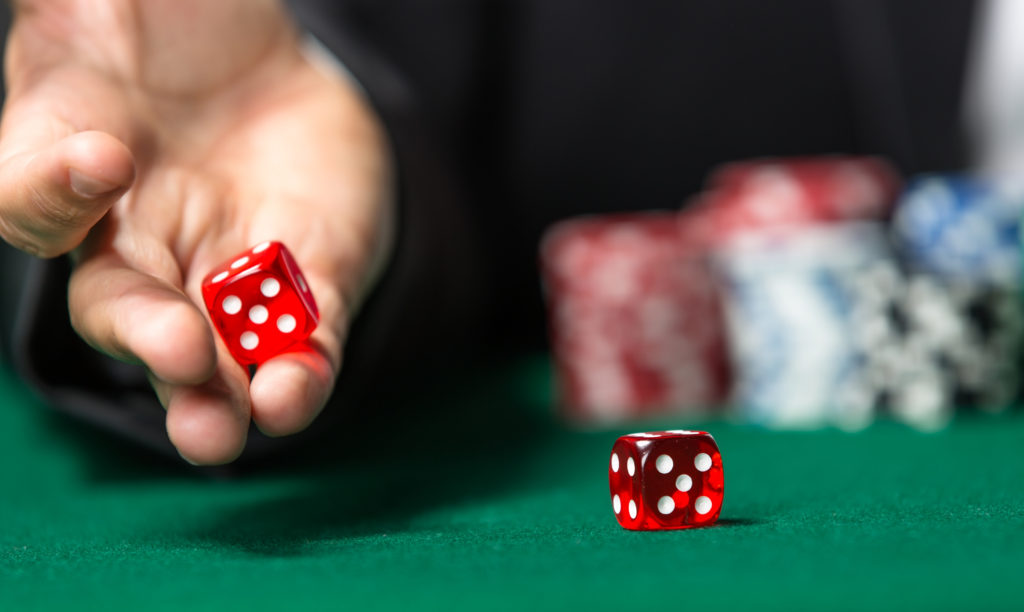
When you read gambling books and articles, you sometimes see a distinction made between the “short run” (tonight, this weekend, this week, this month) of a few hundred or a few thousand decisions, and the “long run” (a few years or more) of millions of decisions. In the short run, anything can (and does) happen. Players can go on incredible streaks of improbable wins or equally improbable losses.
The long run is a very long time. Usually, it can be stated as the amount of time, or number of decisions, necessary for the probabilities to be within a given range of results. A coin flip will be, in the long run, faster than a roulette wheel because a coin flip has only two possible decisions and a roulette wheel has 37 or 38, depending on the type of wheel. As I stated, in the long run, the math of a game will win out over any aberrations that take place tonight.
So what is a gambler to do when making strategy decisions for the game of his choice? Some gaming writers suggest that since most players will never truly get into the long run, that strategies based on long-run results are fundamentally flawed, if not irrelevant. Some will suggest that you go for a guaranteed shortrun win, (i.e. taking insurance when the dealer shows an ace and you have a blackjack.) In the short run, applying strategies based on the math of the games will only work if you intend to hit the casinos weekly, or daily. Many players buy into this notion. They prefer to play for here and now and they tend to forget about tomorrow.
“I play for tonight,” a gambler once told me. “I have no interest in learning strategies for craps. I just hope my luck will hold out and I can make some money. I have had some great evenings at the craps tables when everything went my way. I’ve also had very bad evenings as well. Overall? Overall, I am a loser. But so is everybody who goes to casinos.”
Although it is definitely not true that “everybody who goes to casinos” is a loser, it is certainly true the overwhelming majority are. Yes, it is true that tonight you can have a string of great luck and, maybe, you’ll have a week of incredible good fortune. But, the bigger the house edge on bets made and the greater the number of decisions you face, the more likely it is that your winning streak will come to a halt and you start a slippery slide down that icy mountain called “loss”.
The types of streaks you have in all negative expectation games will be longer on the losing end, monetarily speaking, than on the winning end. The games are structured that way. Even when games are 50-50, such as a coin flip, the casino will (if it offered a game called “coin flip”) take out a tax on the winning bets. While a streak of three heads and three tails are equally likely, if the player won, the casino would take out “vig” or tax his winnings. If he bet $10, he’d win $9.50. However, when he lost, he’d lose the whole $10. So a winning and losing streak of three in a row would see the player down $1.50.
Is it wise to forgo what we know about the proper long-run strategies at games such as blackjack craps, Let It Ride, Caribbean Stud, and others, to take a chance on “luck” in the short run? Obviously, no. In fact, it is silly. There are only two ways to play casino games, the best way and all the other ways. The best way is to make the proper decisions each and every time. In games such as blackjack, that means following basic strategy to the letter, even if certain hands (such as 8:8 vs. a dealer’s 10; or 12 vs. a dealer’s 2) seem intuitively, almost suicidal. In games such as craps and baccarat, it means making the low house-edge bets. Likewise, with card games where your strategy choices matter, such as Let It Ride, Caribbean Stud, Pai Gow Poker, and Three-Card Poker, the long-range strategy should be your short-range strategy.
So keep these ideas in mind when you play. The long run is just made up of a lot of short runs and the math, not “luck,” will usually win out in the end. So to get lucky, stick with the math!
Visit Frank’s web site at www.frankscoblete.com. Frank’s latest books are Confessions of a Wayward Catholic!; I Am a Dice Controller and I Am a Card Counter. Available from Amazon.com, Kindle, Barnes and Noble, e-books and at bookstores.
